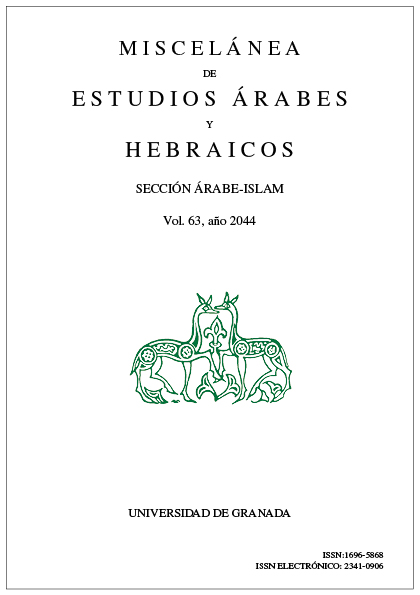Al-Andalus in French historiography: a brief account
Keywords:
Islamic Spain, al-Andalus, Historiography, ArchaeologyAbstract
Three different periods can be outlined within the French historiographic evolution of studies focusing on al-Andalus from the 19th century to the present: first, in the 1960s, with the independence of Maghreb countries, there was a big movement of translations of Arabic texts related to the conquest of North Africa and the Moslem West, as well as an increasing interest in al-Andalus, marked by the works of E. Lévi-Provençal; second, during more than thirty years a multitude of works have appeared and doctoral dissertations have been presented on the history and archaeology of al-Andalus; and third: there is an evolution towards a new discovery of the western Mediterranean and the Maghreb, with the study of al-Andalus issues starting to diminish, especially within the archaeological field due to the economic difficult context.
Downloads
Downloads
Published
How to Cite
Issue
Section
License
The authors publishing their work in this journal agree to the following terms and conditions:
1. The authors retain the copyright and give the journal the right to be the first publication of the work and also to be licensee under a Creative Commons Attribution License which allows others to share the work, provided the author of the work and the initial publication in this journal are acknowledged.
2. Authors may make additional agreements separately for the non-exclusive distribution of the version of the work published in the journal (for example, putting it in an institutional repository or publishing it in a book), with acknowledgement of its initial publication in this journal.
3. Authors are allowed and encouraged to electronically disseminate (for example, in institutional repositories or on their own web page) the published version of their works (publisher's post-print version) or, if not possible, the author's reviewed and accepted post-print version. This is to facilitate productive exchanges, and allow for earlier and greater citation by third parties of the published works (See The Effect of Open Access).
4. The journal accepts no responsibility for the opinions expressed by the authors.















